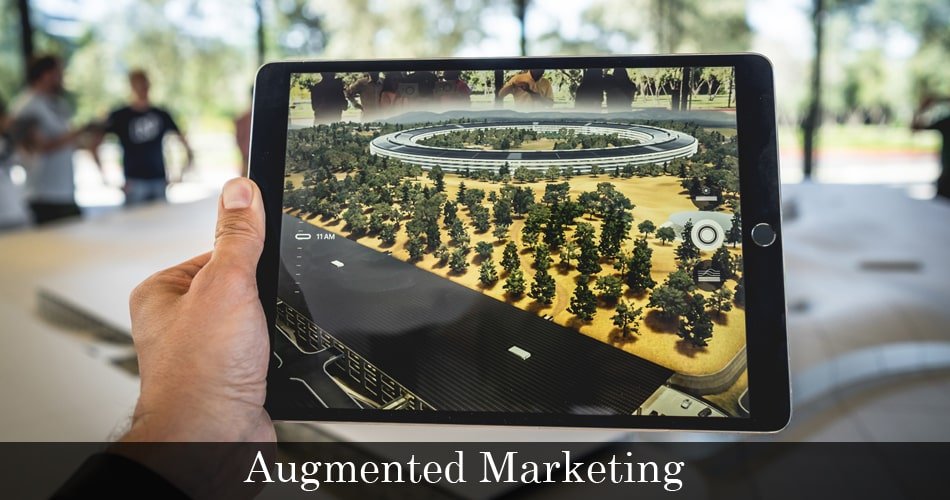Augmented Marketing

Ready to blur the lines between the digital and physical world? Augmented marketing is your answer.
Are you ready to elevate your marketing game? Augmented marketing is the future, and now is the time to embrace it. In today’s digital world, traditional marketing tactics are no longer enough. Consumers are more discerning and demand more from the brands they engage with. This is where augmented marketing comes in.
Imagine a world where your marketing campaigns are personalized for each customer, delivering experiences that keep them coming back for more. With augmented marketing, this vision becomes reality. By leveraging data, artificial intelligence, and cutting-edge technology, you can create marketing strategies that are more effective, efficient, and engaging than ever before. Let’s dive into the world of augmented marketing and discover how it can transform your business.
Applications of Augmented Marketing
Retail
Augmented reality (AR) is revolutionizing the retail sector. Virtual try-ons allow consumers to see how clothing or accessories look without physically trying them on. Brands like Sephora use AR for virtual makeup applications, enabling customers to experiment with different looks. Interactive store displays provide detailed product information and engaging visuals, enhancing the shopping experience. For instance, Nike’s Virtual View helps customers visualize products in real-time, boosting their confidence in purchase decisions.
Real Estate
AR is transforming real estate with virtual property tours, allowing potential buyers to explore homes from the comfort of their own space. Interior design visualizations enable customers to see how different decor choices would look, aiding decision-making.
Gaming
In the gaming industry, AR enhances user engagement through interactive advertisements and in-game product placements. This integration entertains and promotes products seamlessly, making the experience more immersive for players.
Education
Educational institutions use AR for interactive textbooks and virtual field trips. This technology makes learning more engaging by allowing students to visualize complex concepts and explore new environments without leaving the classroom.
Automotive
The automotive sector benefits from AR by enabling customers to configure vehicles and take virtual test drives. This hands-on approach helps consumers understand features and options better, leading to more rational purchasing decisions.
Benefits of Augmented Marketing
Increased Sales
AI sales assistants and AR deliver products directly to customers’ doorsteps without them leaving their homes. This addresses customer problems accurately and encourages purchases.
Product Testing
AR allows for product testing without bringing items to market. Products in development can be showcased, and customer feedback can be gathered. Negative feedback indicates a product may not meet customer needs, saving time and money. Companies can focus on launching products that receive positive feedback.
Lower Purchase Returns
Online shopping faces the challenge of product returns. AR lets customers test products before buying, reducing the chance of returns and saving time for both customers and marketers.
Interactive Experiences
AR marketing personalizes online information with customized applications. Imagine shopping at a supermarket where a smartphone AR app checks prices, coupons, and effective buying combinations.
Employee Satisfaction
AI tools can handle routine tasks, freeing company staff from being available 24/7. This saves time and energy, allowing employees to focus on closing sales deals.
Increased Brand Value
AR can enhance brand value. Unique, entertaining AR experiences create buzz and leave lasting positive impressions, fostering strong customer connections.
Challenges and Considerations
Despite its advantages, augmented marketing comes with challenges:
Technology Costs
Developing high-quality AR experiences can be expensive. Companies must invest in the necessary technology and expertise to create engaging content.
Consumer Adoption
For AR to be effective, consumers need access to compatible devices and a willingness to engage with the technology. Brands must ensure their target audience is equipped and interested in using AR features.
Privacy Concerns
Handling customer data responsibly is crucial. Brands must prioritize privacy and security to build trust with their customers.
Content Creation
Creating compelling AR content requires specialized skills. Brands need to invest in talented creators who can produce high-quality, engaging AR experiences.
Conclusion
By addressing these challenges, businesses can harness the full potential of augmented marketing, creating memorable and effective customer experiences across various industries. Embrace augmented marketing today and transform your business into a leader of tomorrow.
Frequently Asked Questions
Firms have strengthened customers’ connections with brands, increased engagement with commercials and marketing materials, and improved their perceived value through augmented reality, all of which have resulted in greater sales for many companies all over the world.
An augmented product is a feature or service that complements the primary product. The goal is to attract more customers, clients, or buyers by offering attractive rewards and add-ons that the competition’s goods do not have.
AR has changed the way people use social media to share, communicate, and create content. We are entering an era in which social media material will transition entirely from 2D to 3D, aided by augmented reality. In addition, social media will see the adoption of interactive AR content. Users of Facebook, Snapchat, Instagram, and Tinder, among other apps, can feel and see augmented reality experiences.
Customers can engage with products and play with them in real-time and space using Augmented Reality. AR is being used in the technical field to educate their customers. AR adds a new dimension to delivering educational experiences in the real world.